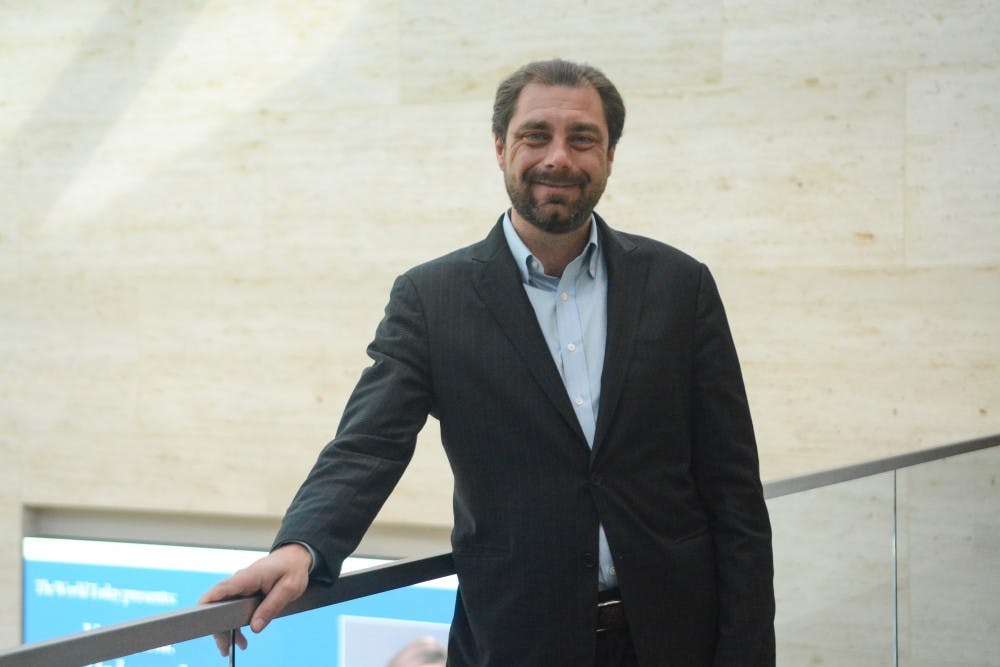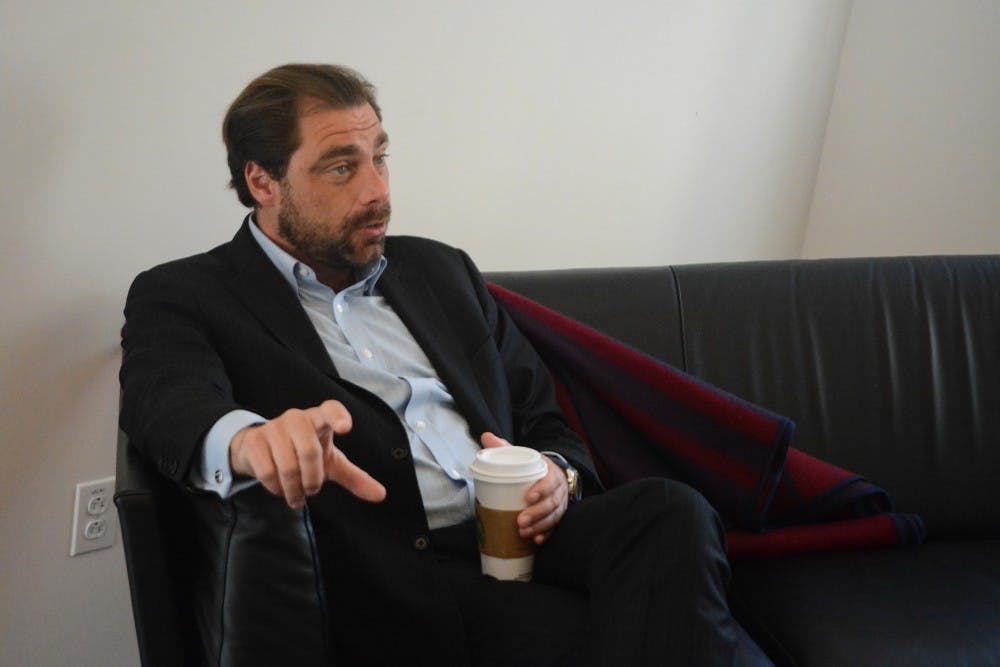
Director of the Perry World House William Burke-White explained the motivations behind the Global Policy Course Enrichment Grants, which fund Penn faculty across all 12 schools to create classes that are more “policy-relevant” for students.
Credit: Naati HamdaPerry World House wants faculty to incorporate policy work into courses, and it will offer $10,000 in grants to three to five faculty members with the best proposals to do so.
The grants, first offered last year, give students the chance to meet foreign leaders, attend conferences in other cities, and participate in realistic policy-making simulations.
This year, faculty from all 12 schools may apply for the Global Policy Course Enrichment Grants, funded by a $498,000 grant gifted by the Carnegie Corporation of New York in 2017. Director of Perry World House William Burke-White said faculty can either create new courses or redesign existing ones, and the funding could go toward supporting research, hiring guest speakers from relevant policy groups, and developing case studies.
“By giving faculty the resources to bring policy work into the classroom, it both changes the experience of Penn students to be more engaged in the policy world, but also facilitates connections between faculty members and policymakers,” Burke-White said, adding that last year's program saw “really big payoffs” for students.
Burke-White said he plans to award three to five grants this application cycle, which ends on Feb. 28, and to continue expanding the scope of the program over the next few years.
“Hopefully there’s a group of core faculty that want to take advantage of the [grants] with some regularity, but I’d really like to see faculty that work in different disciplines,” he said. “I’d love to get a call from a faculty from the Nursing School, who wants to bring people around global public health to campus, or another engineer who is thinking about how to really govern drone technology.”

Last year, Perry World House awarded grants to three courses: “Democracy in Trouble: OAS to the Rescue?,” “Emerging Technologies and the Future of the World,” and “Religion and the Global Future.”
College junior Eva Lardizabal took “Democracy in Trouble: OAS to the Rescue?” and said Penn should offer more classes similar to this one. Co-taught by Latin American and Latino Studies Program Director Tulia Falleti and Associate Director Catherine Bartch, the course gave students the opportunity to meet with former President of Mexico Felipe Calderón and Secretary General Luis Almagro of the Organization of American States.
They attended a model OAS simulation in Washington D.C., and served as mentors to local public high school students from mostly Latin American backgrounds. Together, students designed solutions to global problems in the context of the OAS. They also had the opportunity to meet one-on-one with OAS expert Guillermo Moncayo to review their policy resolutions.
The Daily Pennsylvanian is an independent, student-run newspaper. Please consider making a donation to support the coverage that shapes the University. Your generosity ensures a future of strong journalism at Penn.
Donate






